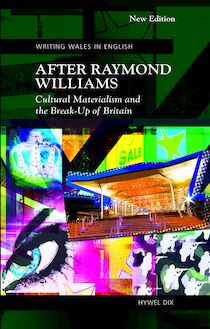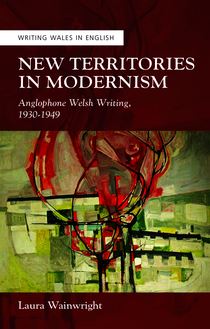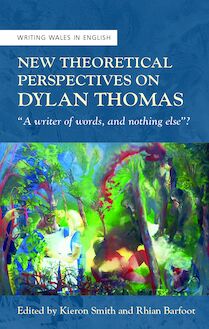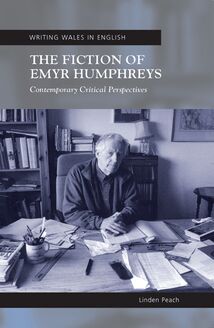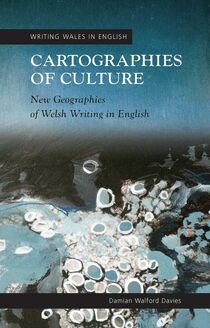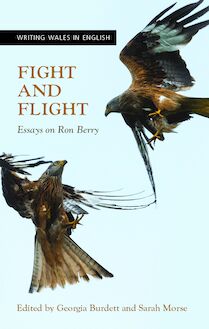-
 Univers
Univers
-
 Ebooks
Ebooks
-
 Livres audio
Livres audio
-
 Presse
Presse
-
 Podcasts
Podcasts
-
 BD
BD
-
 Documents
Documents
-
- Cours
- Révisions
- Ressources pédagogiques
- Sciences de l’éducation
- Manuels scolaires
- Langues
- Travaux de classe
- Annales de BEP
- Etudes supérieures
- Maternelle et primaire
- Fiches de lecture
- Orientation scolaire
- Méthodologie
- Corrigés de devoir
- Annales d’examens et concours
- Annales du bac
- Annales du brevet
- Rapports de stage
La lecture à portée de main
Vous pourrez modifier la taille du texte de cet ouvrage
Découvre YouScribe en t'inscrivant gratuitement
Je m'inscrisDécouvre YouScribe en t'inscrivant gratuitement
Je m'inscrisEn savoir plus
Vous pourrez modifier la taille du texte de cet ouvrage
En savoir plus

Description
Sujets
Informations
| Publié par | University of Wales Press |
| Date de parution | 15 janvier 2011 |
| Nombre de lectures | 0 |
| EAN13 | 9781783164417 |
| Langue | English |
Informations légales : prix de location à la page 0,0450€. Cette information est donnée uniquement à titre indicatif conformément à la législation en vigueur.
Extrait
The Fiction of Emyr Humphreys
Writing Wales in English
CREW series of Critical and Scholarly Studies
General Editor: Professor M. Wynn Thomas (CREW, Swansea University)
This CREW series is dedicated to Emyr Humphreys, a major figure in the literary culture of modern Wales, a founding patron of the Centre for Research into the English Literature and Language of Wales , and, along with Gillian Clarke and Seamus Heaney, one of CREW ’s Honorary Associates. Grateful thanks are extended to Richard Dynevor for making this series possible.
Other titles in the series
Stephen Knight, A Hundred Years of Fiction (978-0-7083-1846-1)
Barbara Prys-Williams, Twentieth-Century Autobiography (978-0-7083-1891-1)
Kirsti Bohata, Postcolonialism Revisited (978-0-7083-1892-8)
Chris Wigginton, Modernism from the Margins (978-0-7083-1927-7)
Linden Peach, Contemporary Irish and Welsh Women’s Fiction (978-0-7083-1998-7)
Sarah Prescott, Eighteenth-Century Writing from Wales: Bards and Britons (978-0-7083-2053-2)
Hywel Dix, After Raymond Williams: Cultural Materialism and the Break-Up of Britain (978-0-7083-2153-9)
Matthew Jarvis, Welsh Environments in Contemporary Welsh Poetry (978-0-7083-2152-2)
Harri Garrod Roberts, Embodying Identity: Representations of the Body in Welsh Literature (978-0-7083-2169-0)
Diane Green, Emyr Humphreys: A Postcolonial Novelist? (978-0-7083-2217-8)
M. Wynn Thomas, In the Shadow of the Pulpit: Literature and Nonconformist Wales (978-0-7083-2225-3)
The Fiction of Emyr Humphreys
Contemporary Critical Perspectives
Writing Wales in English
LINDEN PEACH
© Linden Peach, 2011
All rights reserved. No part of this book may be reproduced, stored in a retrieval system, or transmitted, in any form or by any means, electronic, mechanical, photocopying, recording or otherwise, without clearance from the University of Wales Press, 10 Columbus Walk, Brigantine Place, Cardiff, CF10 4UP.
www.uwp.ac.uk
British Library Cataloguing-in-Publication Data
A catalogue record for this book is available form the British Library.
ISBN 978-0-7083-2216-1
e-ISBN 978-1-78316-441-7
The right of Linden Peach is to be identified as author of this work has been asserted by him in accordance with sections 77 and 78 of the Copyright, Designs and Patents Acts 1988
Cover image: Emyr Humphreys Photolibrary Wales/Bernard Mitchell
For Angela
C ONTENTS
General Editor’s Preface
Preface
Acknowledgements
Note on Editions of Works by Emyr Humphreys
Part One: Frames and Contexts
1
Humphreys’s Life and Works
2
What Kind of Fiction?
3
History, Space and Progress
4
Bodies in Time: Psychoanalytic Contours
5
Women, Feminism and Post-feminism
Part Two: Readings
6
Resistance, Gender and Performative Identity: A Man’s Estate
7
Contested Masculinities: A Toy Epic
8
Time and Being: Outside the House of Baal
9
Land of the Living and Epic Theatre
10
Warring Families: Unconditional Surrender and The Gift of a Daughter
11
Strangers in a Strange Land: Natives , Ghosts and Strangers and Old People are a Problem
12
Intimate Strangers: The Shop
13
Independence, Globalism and Nonconformity: The Woman at the Window
14
Afterword
Notes
Select Bibliography
G ENERAL E DITOR ’ S P REFACE
The aim of this series is to produce a body of scholarly and critical work that reflects the richness and variety of the English-language literature of modern Wales. Drawing upon the expertise both of established specialists and of younger scholars, it will seek to take advantage of the concepts, models and discourses current in the best contemporary studies to promote a better understanding of the literature’s significance, viewed not only as an expression of Welsh culture but also as an instance of modern literatures in English worldwide. In addition, it will seek to make available the scholarly materials (such as bibliographies) necessary for this kind of advanced, informed study.
M. Wynn Thomas CREW ( Centre for Research into the English Literature and Language of Wales ) Swansea University
P REFACE
It almost goes without saying that Emyr Humphreys, a prolific writer for over half a century, has made an outstanding contribution to the literature and culture of Wales. The diversity of this contribution – as novelist, short-story writer, poet, dramatist, television producer – makes it difficult to assess. But, undoubtedly, Humphreys’s greatest achievement has been his fiction, especially his novels. Although he has worked in both the Welsh and English languages, it is the novels in English on which his future reputation will probably depend. Humphreys began writing when the literary, critical and scholarly environment was very different from what it is now and, indeed, Wales then was very different from post-Assembly Wales.
Humphreys initially thought of himself as a ‘Protestant’ novelist, but this term, which he has now rejected, does not do him justice. In discussing the kind of writer Humphreys is, this book explores more appropriate descriptions of his work, such as ‘dramatic’, ‘dissident’ and ‘dilemma’ fiction, which include some of the qualities which he associated with the ‘Protestant’ novel, but which more fully encapsulate his unique contribution to Welsh literature and culture.
In some respects, the English and Welsh binary is more misleading when applied to Humphreys than to other Welsh writers who work in English. Although he has written more fiction in English than Welsh, having learned Welsh as an adult, he has been immersed in Welsh-language literature and culture and in his native north Wales where, with the exception of the Second World War and a few years afterwards, he has lived all his life. Although outside the scope of this particular study, his Welsh-language work, especially his drama and contribution to Welsh television and radio, are important. The English–Welsh binary is complicated in his case, too, by his interest in, and passion for, European literature and drama which has also had a profound influence on his work.
The subjects of this study are the extent to which his work is illuminated by late twentieth- and early twenty-first-century critical approaches and the relevance of his work to the twenty-first-century reader. The book is divided into two parts. Part one provides the reader with different frameworks and contexts within which Humphreys’s fiction may be read. It suggests that at the heart of his work is an interest in the history of modern Wales but a history that has never been fully present. This dimension of his work is examined through ideas and concepts provided by the European linguistic philosopher Jacques Derrida. If this Derridean reading provides new insights into Emyr Humphreys’s work, the same is argued for psychoanalytic approaches through which aspects of his work, such as sexuality, violence and father–daughter relationships, are more fully revealed. Equally important is his experimentation with narrative perspectives which is discussed in part one in regard to the modernist writers, such as Bertolt Brecht, Kate Roberts, Virginia Woolf and William Faulkner, whom he admired, and demonstrated more fully in the select readings of some of his novels in part two. This book also explores how Humphreys’s fiction makes a significant contribution to understanding feminism, and what is contentiously referred to as ‘post-feminism’, in twentieth-century Wales, through characters whose lives are aligned with movements addressing the social and civic injustices suffered by women and others who have been brought up in an environment where feminism has been taken for granted.
Part two provides readings of key texts from a range of critical perspectives including ‘performative’ concepts of gender identity; contested masculinities; different concepts of time; the influence of Brecht; the ‘stranger’ as a psychoanalytic as well as a social concept; the daughter as a figure located simultaneously in socio-symbolic and psycho-symbolic fields of understanding, and debates around war, pacifism and cultural discourse. It does not seek to provide definitive or exhaustive readings of Humphreys’s work, even if that were a desirable objective. Through an examination of some of Humphreys’s key works of fiction, frameworks and contexts are discussed in which Humphreys’s unique contribution to Welsh literature and culture may be better understood.
A CKNOWLEDGEMENTS
I am especially grateful to Edge Hill University which has provided me with research grants to consult the Emyr Humphreys’s archive at the National Library of Wales, Aberystwyth, and two periods of sabbatical leave without which this book could not have been written. I am indebted to colleagues at the university and, especially the dean of the Faculty of Arts and Sciences, Dr Nigel Simons, for his support. I would like, also, to express my gratitude to staff at the National Library of Wales, Aberystwyth, for their cheerful assistance and guidance. I am indebted once again to Professor M. Wynn Thomas, Emyr Humphreys Professor of Welsh Writing in English in the Centre for Research into the English Language and Literature of Wales, Swansea University, for his advice, encouragement and support.
N OTE ON E DITIONS OF W ORKS BY E MYR H UMPHREYS
Unless indicated in the endnotes, references to the primary works of fiction are to the following editions:
Emyr Humphreys, The Little Kingdom (London: Eyre & Spottiswoode, 1946); A Man’s Estate (1955; rpt. London and Melbourne: J. M. Dent & Sons Ltd, 1988); A Toy Epic (1958; rpt. Bridgend: Seren, 1989); Outside the House of Baal (1965; rpt. London and Melbourne: J. M. Dent & Sons Ltd, 1988); Natives (London: Secker & Warburg, 1968); National Winner (1971; rpt. Cardiff: University of Wales Press, 2000); The Best of Friends (1978; rpt. London: Sphere, 1996); The Anchor Tree (London: Hodder and Stoughton, 1980); Salt of the Earth (1985; rpt. London: Sphere, 1996
-
 Univers
Univers
-
 Ebooks
Ebooks
-
 Livres audio
Livres audio
-
 Presse
Presse
-
 Podcasts
Podcasts
-
 BD
BD
-
 Documents
Documents
-
Jeunesse
-
Littérature
-
Ressources professionnelles
-
Santé et bien-être
-
Savoirs
-
Education
-
Loisirs et hobbies
-
Art, musique et cinéma
-
Actualité et débat de société
-
Jeunesse
-
Littérature
-
Ressources professionnelles
-
Santé et bien-être
-
Savoirs
-
Education
-
Loisirs et hobbies
-
Art, musique et cinéma
-
Actualité et débat de société
-
Actualités
-
Lifestyle
-
Presse jeunesse
-
Presse professionnelle
-
Pratique
-
Presse sportive
-
Presse internationale
-
Culture & Médias
-
Action et Aventures
-
Science-fiction et Fantasy
-
Société
-
Jeunesse
-
Littérature
-
Ressources professionnelles
-
Santé et bien-être
-
Savoirs
-
Education
-
Loisirs et hobbies
-
Art, musique et cinéma
-
Actualité et débat de société
- Cours
- Révisions
- Ressources pédagogiques
- Sciences de l’éducation
- Manuels scolaires
- Langues
- Travaux de classe
- Annales de BEP
- Etudes supérieures
- Maternelle et primaire
- Fiches de lecture
- Orientation scolaire
- Méthodologie
- Corrigés de devoir
- Annales d’examens et concours
- Annales du bac
- Annales du brevet
- Rapports de stage
